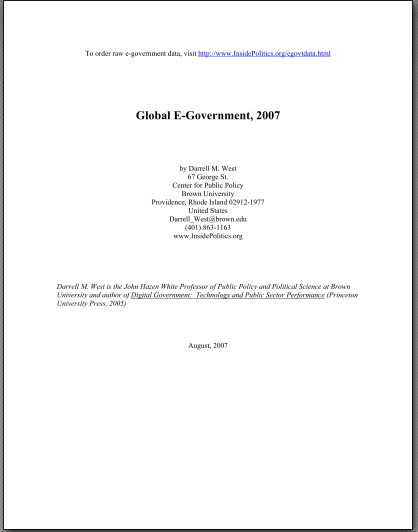 | Global e-Government, 2007 "In this report, I present the seventhh annual update on global e-government. Using an analysis of 1,687 government websites in 198 different nations undertaken during Summer, 2007, I investigate electronic government. Among the significant findings of the research are:
1) 28 percent of government websites offer services that are fully executable online, about the same as last year.
2) 96 percent of websites this year provide access to publications and 80 percent have links to databases.
3) 29 percent (up from 26 percent in 2006) show privacy policies, while 21 percent have security policies (up from 14 percent in 2006).
4) 23 percent of government websites have some form of disability access, meaning access for persons with disabilities, the same as last year. 5) Countries vary enormously in their overall e-government performance based on our analysis. The most highly ranked nations include South Korea, Singapore, Taiwan, the United States, Great Britain, Canada, Portugal, Australia, Turkey, and Germany. "
CLICK HERE FOR FULL REPORT
|